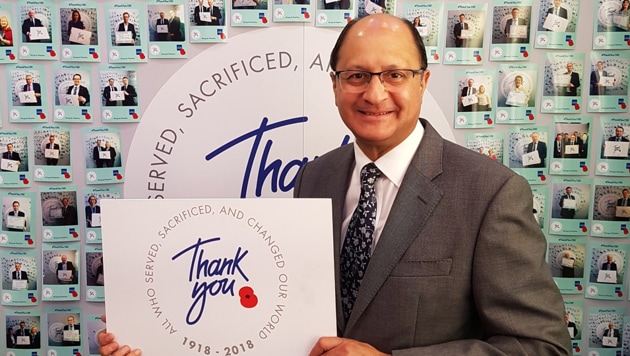Indian-origin MP in race to be next speaker of House of Commons
Vara, who has been an MP since 2005 and held various ministerial roles under the prime ministership of David Cameron and Theresa May, resigned as minister for Northern Ireland in November 2018 to oppose the EU withdrawal agreement reached by May.
Shailesh Vara, the Uganda-born son of Gujarati parents and Conservative MP from North-West Cambridgeshire, is among nine candidates in the fray to succeed John Bercow as the next speaker of the House of Commons.

Bercow, who has attracted some controversy during heated Brexit debates, has announced that he will resign by October 31. The next speaker’s election is due to be held on November 4, with candidates currently making their pitch through the media.
Vara, who has been an MP since 2005 and held various ministerial roles under the prime ministership of David Cameron and Theresa May, resigned as minister for Northern Ireland in November 2018 to oppose the EU withdrawal agreement reached by May.
Vara, who is a recipient of the Pravasi Bharatiya Samman and has visited India as minister, said: “The role of Speaker is vital to our democracy. There are many challenges ahead for parliament and I believe I have the necessary experience to lead the way having served in a variety of roles including as a minister, a government whip, a shadow minister and a backbencher”.
Other candidates for the speaker’s role are: Henry Bellingham, Chris Bryant, Harriet Harman, Meg Hillier, Lindsay Hoyle, Eleanor Laing, Edward Leigh and Rosie Winterton.
The next speaker will be elected by MPs by secret ballot. If any candidate receives more than 50 per cent of the votes, the question is put to the House that he or she takes the chair as speaker.
If no candidate gets 50 per cent, the candidate with the fewest votes, and those with less than five percent of the vote, are eliminated. MPs then vote again on the reduced list of candidates and continue doing so until one candidate receives more than half the votes.
The speakership of the House of Commons dates back to 1377 and over the centuries the requirement of being impartial and politically neutral was established.
One of the defining principles for the role was laid down by speaker William Lenthall in 1642: “I have neither eyes to see, nor tongue to speak in this place, but as the House is pleased to direct me, whose servant I am here”.






